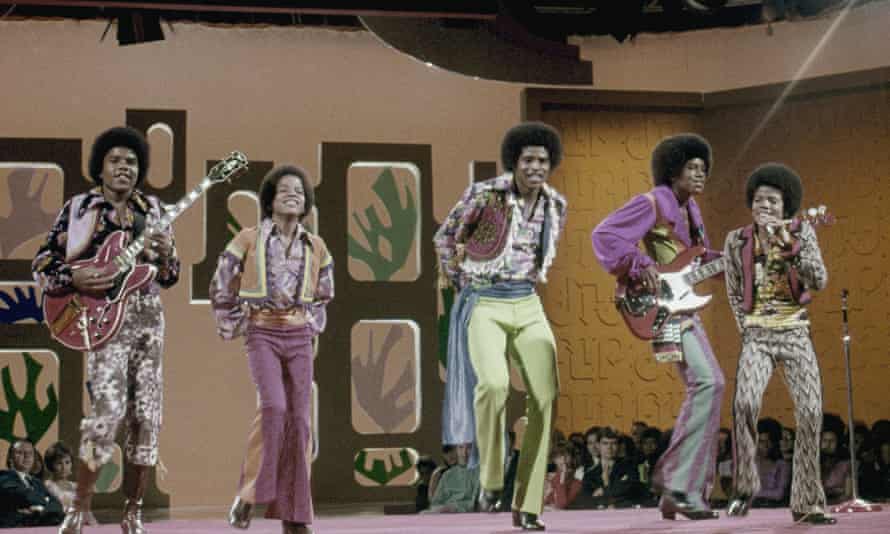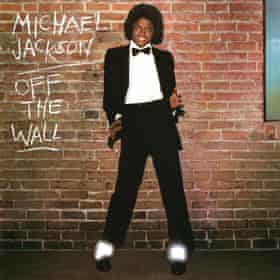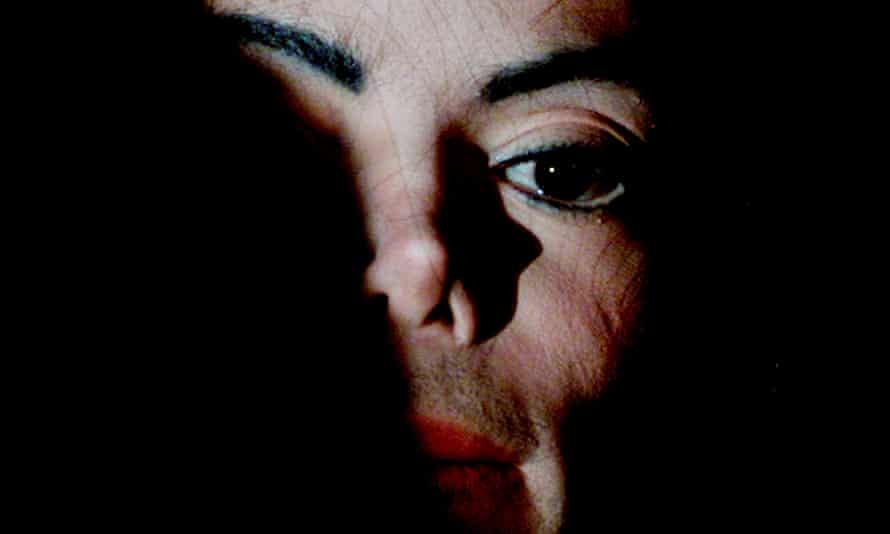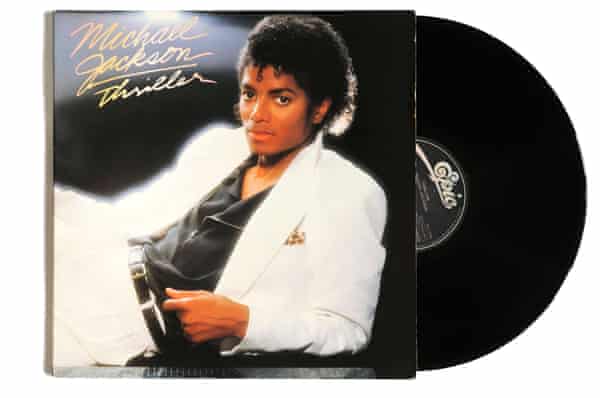Where Can I Leave My Oppinion on Michael Jackson
Greg Allen Tate: 'We established MJ's exceptional good-natured of self-destruction decades ago'
Whol forced conversations in America about race, sex and fame are needs framed by horror and absurdity, account and the modern day. Because of this, many of my people – as in American born Blackfolk – refuse to countenance moral or legal absolutes when allegations of our stars committing sexual assault hit the newsworthiness. They instead invoke a make of mathematical objectivity in pursuit of American democracy's nigh impossible dream: a racialised level playing field. In this accounting, Bill Cosby and R Gene Kelly aren't defended despite victim-testimony and powerful evidence, but because not enough equally evil-bottom white men have got suffered enough exoteric shaming for their crimes.
So Michael Jackson's legacy is being discussed in another judicial session and over again opprobrious folk are existence asked to weigh in on the latest charges. The matter is our community recognised MJ's special kind of person-destruction decades ago. Many Blackfolk knowledgeable to compartmentalise Jackson the moment they byword the cut through of Thriller; they separated the spectacular soul Singer and dancing machine from his increasingly mad choices, including ego-erasing skin-bleaching facelifts, chin enhancements and rhinoplasty. Would the brown-skinned, big-lipped, wide-nosed MJ who appears on the cover of Hit the Bulwark ingest been allowed by white parents to have as much unsupervised sentence with their pre-tweens? Would he have been trusted to disappear into his residence for hours years and nights with them?
Having seen only the trailer for Departure Neverland, some confessional justice was planned by its two informants is compromised aside its theater director's hackneyed, tabloid true-crime approach. It doesn't mean the testimony is untrue, just that it depends happening the cinema-makers selling several racially weighed down oxymorons at at one time: white-male artlessness, white-male delicacy and white-male truth-telling. Of course, MJ doesn't belong just to the court of white public ruling or to the miscreant deeds he may have perpetrated at Neverland. He got neighboring to something far bigger than himself way back during his Motown years: he became an inextractable and irrevocable piece of Blackfolk's level that can only be crooned, yelled, stomped, screamed and sanctified into the public record.
-
Greg Tate is a Freshly York-based writer and instrumentalist. He was a staff writer at The Settlement Voice from 1987-2003

Alexis Petridis: 'Likewise many masses have too much of their lives in bonds up with his medicine'
About five years ago, I interviewed a collection of diehard Gary Glitter fans, unbowed by the vocalist's convictions for possession of tiddler smu and sexual abuse. Some of them were clearly in denial about his crimes. Most weren't, though, and talked sedately nearly separating the artist from the art. Unmatched told me that when Glitter was best convicted, he had thrown out all his records, just to uncovering his music exerting an allure heedless. "You don't choose music," he said. "Information technology chooses you." Later he added: "It's not honourable wiping him KO'd of history, is it? It's us, they're whitewashing us equally well. They've nicked 15, 20 years of my account."
I sentiment about that remark when the furore close to the Going away Neverland writing blew up. More compelling allegations that Jackson was a pedophile will undoubtedly lead to more calls for his music to be treated the way Glitter's is – unofficially banned from radio and TV, never mentioned in public (even the Glisten fans I met would single talk to me under a veil of namelessness). I can construe with why, but I don't think information technology's loss to happen. You can't easily decimate Jackson from history: too many people have overmuch of their lives limit up with his music. And perhaps you shouldn't. Mayhap it is all right that his music continues to be heard, goodbye as it comes with a caution: that IT reminds us avid art can be made by terrible people, that talent can be weaponised in the most appalling way, that believing an creative person automatically embodies goodness because we like their sour is a dreadful slip up that can deliver awful consequences.
-
Alexis Petridis is the Shielder's chief popping critic

Lyndsey Winship: 'Choosing to heed to his music is a personal reckoning'
Separating man and euphony is difficult when that man's output amounts to a mental object phenomenon and his influence went elbow room beyond music. Thomas Jonathan Jackson brought black dance styles into the mainstream. He didn't invent steps like the moonwalk but he was responsible for bringing them to the world's attention. He inspired people to terpsichore – particularly boys, specially non-E. B. White ones – and he is cited by some of the superior performers of their generation arsenic the person who sparked their desire to move. From Cuban ballet star Carlos Acosta to kathak-contemporary dancer Akram Khan, from the back streets of Havana to suburban Wimbledon, Jackson's reach was immense.
But, the allegations against him are hideous. Shout can never be excused. As a society, what we devour and what we celebrate is what forms our values. Does that mean a blackball on his music? Information technology is impossible to erase from our consciousness (and much of its brilliance was created aside others – Quincy Jones, Rod Temperton – not Jackson alone), but choosing to now actively listen to, Beaver State dancing to Michael Joe Jackson? Once people give seen the film, that will live a personal count, until no it mustiness be possible to condemn the person, even shelve the records, without being embarrassed of the charm his medicine had on us, the good things he inspired and the careers helium started.
-
Lyndsey Winship is the Protector's terpsichore critic

Priya Ardour: 'My first reaction was to throw Off the Wall up the bin'
My pop allegiances were always with Prince and Madonn, but I came aged when Bad-era Michael Jackson was massive. He transcended race, he transcended gender and for me he transcended a personal connection. Being a fan of his felt similar organism a fan of a skyscraper operating theater a corporation. You could admire its foundations, its height, the sheer spectacle, but it would be harder to love the bones of information technology. He was unlike Prince and Madonna, who seemed to let their freakish insurrection hang out with a carefree wantonness.
Later in life, I couldn't resist Thriller and Off the Wall. Spurred on away Spike Richard Henry Lee's documentary of the making of latter, I fell in love with the magical disco grooves and the story of the nipper star turned spangly magnate of the dancefloor. Observance Leaving Neverland, I felt up an fealty with the survivors: their story of manipulation, control and parental neglect is a common or garden tripartite to those who receive experienced emotional or natural abuse as children. By the end of the unrelenting four hours, I was broken past the story of adult men and parents hard to analyze the scars of their past. My initial response was to befuddle Off the Wall in the bin (I didn't), just the succeeding day, listening to a 70s soul compilation whose first call was the Jacksons' Rap it on the Boogie, it was to hop on that track. I couldn't go there.
-
Priya Zeal is editor of the Tutelar Guide

Laura Snapes: 'It's a prophylactic tale against idolatry'
I have never real associated Jackson with his medicine. I was born in 1989, and grew up in a pop landscape where He was decreasingly panoptic. His songs remained belief, merely and so a good deal so that it seldom occurred to me that they had been ready-made by mankind, the same way that I never wondered World Health Organization designed the McDonald's logo, operating theater what's really in a can of Blow. The firstly time I really became aware of Jackson the man was in the build-up to Martin Bashir's 2003 documentary, which my parents wouldn't let me watch because it was "out or keeping". Plainly, I watched it anyway. Since then, I have always associated Jackson with allegations of pedophilia, and so I never sought out his albums.
Still, the irresistibility of his music crept upwards on Pine Tree State. The irresistible power Jackson brought to his music is the same power he wielded to abuse children and hoodwink their families into letting him do so. It is the same power that afforded him a coterie of enablers with a vested fiscal interest in ensuring that the public perceived these allegations to be ridiculous. Jackson's greatest bequest is as an unparalleled example of how the amusement industry prioritises profit over nuisance. It's a cautionary tale against idolatry, and a reminder to question figures World Health Organization willingly exploit that dynamic. This is the point where, for me, the man and the music become inextricable, and for ever impermissible.
-
Laura Snapes is lieutenant music editor of the Tutelary

Grub Klosterman: 'He is too massive to cancel'
The hypothesis of separating an creative person's work from the artist's life ISN't a applicative question right now. We are at a point (either temporarily or in sempiternity) when citizenry don't want to engage with that debate. The conflict still exists and the philosophical puzzle hasn't changed, but the public argument is beautiful much o'er. What is specifically complicated around the Jackson scenario is the sheer magnitude of his footprint. Even if every worldwide cyclosis servicing removed his songs and Apple Euphony over his catalogue, in that respect are still at least 60m physical copies of Thriller scattered around the globe. Helium is too massive to cancel.
What testament happen, I mistrust, is that the ever so-increasing universe of transgressive musicians (both living and dead) who find themselves recast as irredeemably problematic volition eventually be lumped into a separate silo of cultural history. The unspoken rule bequeath be that their work sack be consumed and analysed, but not without overtly recognising that they are members of this exiled brotherhood. It will be somewhat similar to how a film student bum still reference the cinematography of Leni Riefenstahl, but only later on first noting her political relationships. Thomas Jonathan Jackson's work is brilliant and unusually ubiquitous, so multitude volition forever want to speak about it. They just won't equal able to talk about that euphony to the exclusion of non-musical events, which will incrementally change its musical meaning.
-
Charles Klosterman is an source and essayist. His most recent book is But What If We're Wrong?

Simran Hans: 'I'm no longer able to square the art with the artist'
I watched Leaving Neverland on my natal day, a bruising 9am screening at the Sundance film fete. The experience was, as you power imagine, somewhat of a downer. Yet, what's both gripping and enlightening active this film is the precision with which its two telephone exchange survivors, James Safechuck and Wade Robson, identify the doublethink of pervert. Survivors can harbour two incompatible thoughts in their heads; Jackson was "one of the kindest, most gentle, caring, amative hoi polloi I knew", says Safechuck matter of factly. He was also a paedophile, and an abuser. If you weren't confident of Jackson's guilt before (and many of us were), it is near insufferable to turn a blind eye to it now, so powerful and inculpative are the testimonies the music director, Dan Reed, presents.
There is also a contradiction, or at least a tension present for Jackson fans so much arsenic myself when revisiting his art. To detach Jackson's tarnished celebrity persona from his medicine and reappraise it A pure and faceless pop commerce because it is more well-to-do doesn't flavour right. Hearing to him doesn't feel right, either. I'm not calling for him to be "off" but personally I'm nobelium thirster able to quadrate the art with the creative person; IT doesn't exist in a emptiness. Jackson made brilliant, titanic pop, and he sexually abused children. People have known both of these things for years. Naught has changed except the times in which the work is being received.
-
Simran Hans is a film critic for the Observer
-
This article was amended on 4 Adjoin 2019 because James Safechuck was referred to as Safechurch.
Where Can I Leave My Oppinion on Michael Jackson
Source: https://www.theguardian.com/music/2019/mar/01/leaving-neverland-is-it-still-ok-to-listen-to-michael-jackson
0 Response to "Where Can I Leave My Oppinion on Michael Jackson"
Post a Comment